An ingrained instinct had shot my hand forward and squish, the silverfish was no more, a smear on the lino and I was left with an uneasy sense of remorse at my casual extinction of this harmless creature. As a child the sprinting presence of a silverfish along the kitchen floor or around the bathroom was a palpable symbol of dirtiness and mild horror. The Thysanurans or Bristletails are three ‘tailed’ insects, clothed in scales and bearing biting jaws. The silverfish is only one of a number of Bristletails found in or outdoors, preferring damp places it likes to feed on starchy foods such as paper or spilled flour, which I think quite neatly explains why its traditional haunts include the kitchen cupboards or behind the wash basin. A relative, the Firebrat prefers it a bit warmer, so can be found in bakeries and heating ducts, another has adapted to the splash zone along the coast and another is very commonly found amongst thick vegetation. They have no wings and unlike other invertebrates undergo very limited or no metamorphosis during their lifecycle. I think that I would still not be happy with the nocturnal silverfish running rampant in the self-raising flour but I can see that a complete household purge would be impossible when I enter the bathroom to find the children have stored all the used towels in a heap in the corner!
I had been very kindly given the code to the bird hides at the Wood Lane nature reserve, just south of Ellesmere. A light but persistent rain made my choice of covered birding a wise one and I settled in on the wood warm bench, popped the flask and got watching. Oystercatcher to the left, probing the soft soils of a wet grassland, black headed gulls colonising one shingle island, whilst the other was controlled by Common gulls and little pied wagtails working the grounds between. On the open water created by aggregate extraction paddled coots, a pair of moorhen, tufted ducks, two Shelduck and hugging the shoreline some teal. Busy lapwings burbled over the throng and occasionally strutted on the grasslands, pecking the ground and showing off their splendid crests. On the central pool I had seen a Great crested grebe sailed past, a slight movement to her rear turned out to be a chick and even better, perched cosily on her back a second chick taking a ride. Just before moving for home I spied a brown swallow type bird, which turned out to be a Sand martin. Heading car-ward after less than two hours, a worthwhile trip and I must mention, quality hides, just must remember to thank my friend for a top birding destination.
It has been a busy time of late and I needed to get a bluebell walk in before the season slid by. Parking in the Forest Glen car park at the base of the Wrekin I met the group and headed up into the Ercall woodlands. Rich aromatic stands of ransoms were at their best, thick strappy leaves curved away from an upright stem holding the clustered white flowers aloft. Occasional dog violets peeped out along the paths edges, sheltering under woodland grasses and hairy woodrush rosettes. We had looped through Limekiln woods and then climbing the ridge entered the best of the bluebell swathes. I made a futile attempt to capture the splendour by taking photographs, settled for chatting about the problems posed by the Spanish bluebell with its unruly ‘anyway’ flower-head, overly wide leaves and dreadful promiscuity that leaves a trail of unwanted hybrids behind it. The bluebell has a restricted global range and the UK enjoys a considerable proportion of the total world population. It is a plant easily trampled and tends to retreat when under such direct pressure, a shame when it should be present in many locations but has shrunk away from the boot and wheel. On the return to the cars I took in a lingering look at the blue haze, satisfied that I had a top up to get me around another set of seasons. Add to this the Orange tip, peacock and enigmatic white butterflies back in the skies and certainly the full swing of late spring has arrived.
Happy wildlife spotting, fond regards, Pete.
8 Jun 2012
Subscribe to:
Post Comments (Atom)




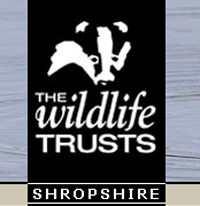

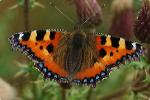




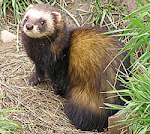

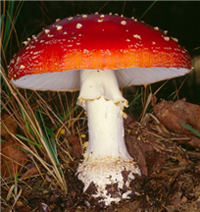





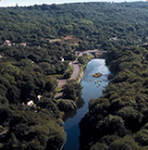






No comments:
Post a Comment
Please feel free to comment on this post...